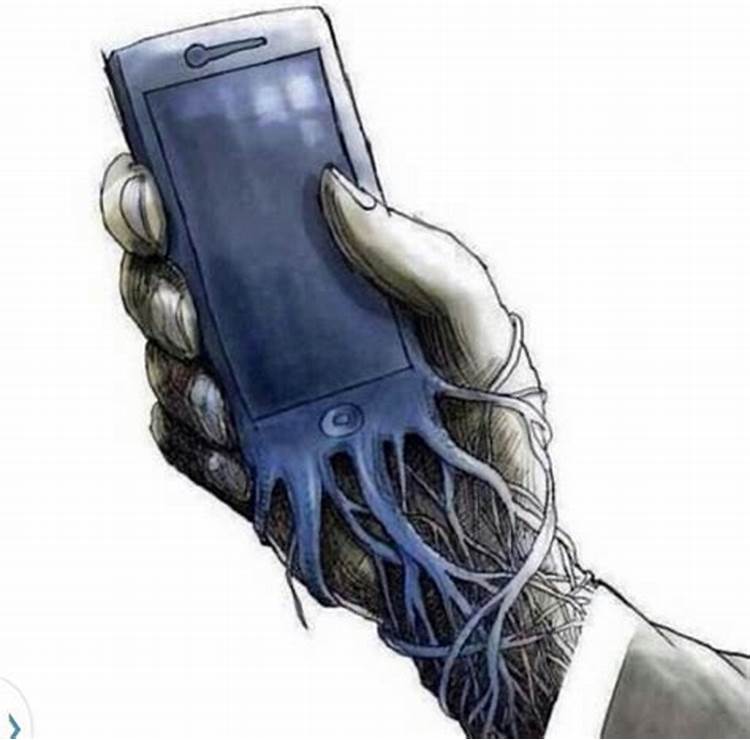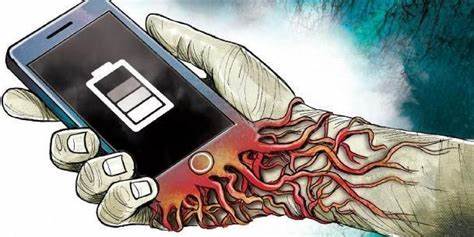Mobile Addiction Treatment
Mobile addiction, or smartphone addiction, is an increasing concern in today’s digital age. It involves excessive or compulsive use of mobile devices, which can lead to significant negative impacts on daily life, productivity, and mental health. This guide provides a detailed examination of mobile addiction, its causes, effects, and effective treatment strategies.
What is Mobile Addiction?
Mobile addiction is characterized by an overpowering need to use mobile devices, leading to neglect of other aspects of life. It manifests through behaviors such as:
- Excessive Screen Time: Spending an inordinate amount of time on smartphones, often at the expense of other activities.
- Compulsive Checking: Frequently checking notifications, messages, or social media updates, even without a specific reason.
- Neglect of Responsibilities: Prioritizing smartphone use over work, studies, and personal relationships.

Causes of Mobile Addiction
Several factors contribute to the development of mobile addiction, including:
Psychological Factors
Instant Gratification: Immediate rewards from notifications and social media likes can create compulsive behavior.
Escapism: Mobile devices may be used emotional issues, offering temporary relief but potentially reinforcing unhealthy habits and avoiding underlying problems.
Social Factors
Peer Pressure: Social norms and pressures can encourage excessive mobile use, especially among teenagers and young adults.
Social Media Influence: Platforms designed to capture attention and promote continuous engagement contribute significantly to addiction.
Technological Factors
Design Features: Apps and devices are often designed to maximize engagement, with features like push notifications, infinite scroll, and personalized content.
Gamification: The incorporation of game-like elements, such as rewards and challenges, into apps increases their addictive potential.
Effects of Mobile Addiction
Mobile addiction can have profound effects on various aspects of life:
Mental Health
- Anxiety and Depression: Excessive use of mobile devices, especially social media, is linked to higher levels of anxiety and depression.
- Sleep Disturbances: Prolonged screen time, especially before bedtime, can disrupt sleep patterns and lead to insomnia.
Physical Health
- Eye Strain: Extended screen time can cause digital eye strain, leading to discomfort and vision problems.
- Sedentary Lifestyle: Increased screen time often correlates with decreased physical activity, contributing to obesity and related health issues.
Social and Occupational Impact
- Relationship Strain: Prioritizing mobile use over face-to-face interactions can lead to strained relationships with family and friends.
- Reduced Productivity: Excessive smartphone use can interfere with work or academic performance, leading to decreased productivity and focus.

Strategies for Prevention and Long-Term Management
Preventing mobile addiction and maintaining a balanced approach to device use involves:
Setting Boundaries
Device-Free Zones: Create areas in the home, like the dining room or bedroom, where mobile devices are not permitted, encouraging more focused and present interactions.
Technology-Free Times: Designating specific times of the day, such as during meals or before bed, when mobile devices are not used.
Promoting Healthy Habits
Engaging in Offline Activities: Encouraging participation in activities that do not involve screens, such as outdoor sports, reading, or social gatherings.
Creating a Balanced Schedule: Developing a daily schedule that includes time for both digital and non-digital activities.
Educating on Responsible Use
Digital Literacy: Educating individuals, especially children and adolescents, on the responsible use of technology and the potential risks of excessive use.
Parental Controls: Using parental control features to manage and monitor mobile device use among children and teenagers.
Approaches to Mobile Addiction Treatment
Effective treatment for mobile addiction involves a combination of strategies designed to reduce screen time and address underlying issues. These strategies include:
Behavioral Interventions
Behavioral interventions aim to modify habits and promote healthier use of mobile devices:
- Digital Detox: Implementing periods where smartphone use is minimized or eliminated to break the addiction cycle.
- Usage Tracking: Using apps or built-in device features to monitor and limit screen time, setting daily usage goals.
- Scheduled Use: Allocating specific times for mobile use and adhering to these schedules to create structured routines.
Cognitive Behavioral Therapy (CBT)
CBT can be particularly effective in addressing the compulsive behaviors associated with mobile addiction:
- Identifying Triggers: Recognizing situations or emotions that trigger excessive smartphone use and developing coping strategies.
- Changing Thought Patterns: Challenging and altering negative thought patterns related to mobile use, such as the need for constant connectivity.
Family and Social Support
Support from family and friends is crucial in overcoming mobile addiction:
- Family Involvement: Educating family members about the impact of mobile addiction and involving them in the recovery process.
- Support Groups: Joining support groups for individuals struggling with mobile addiction to share experiences and strategies.
Professional Help
For severe cases of mobile addiction, seeking help from mental health professionals may be necessary:
- Therapists and Counselors: Working with therapists who specialize in addiction and behavioral issues to address underlying psychological factors.
- Rehabilitation Programs: In extreme cases, participating in structured rehabilitation programs designed to address digital addiction.